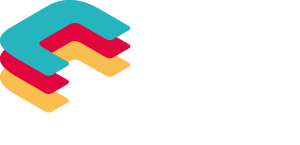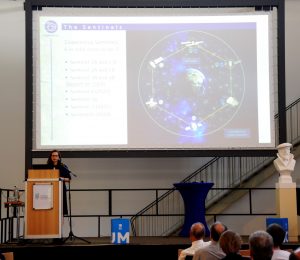ZENIT GmbH with its ZIM cooperation networtk „CopServ“ and TH Georg Agricola University of Applied Sciences presented technologies and solutions which will be possible in the future due to earth observation data and especially the European satellite program “Copernicus” that is still being established during the international conference “Earth Observation & Copernicus – Technologies and Solutions” in Bochum on April 18 & 19.
The observation of mining consequences bears not only a huge challenge for the Ruhr area but also internationally. How can by means of data from outer space, data from earth observation and Copernicus satellites risks being calculated better and sustainable actions planned optimally with innovative solutions. Therefore more than 140 participants from 20 countries came together in Bochum to discuss also the applications possibilities and necessary innovations in further interesting fields such as energy, agriculture, forestry and urban and spatial planning and to work out concrete developments and solutions.
Invitations for the conference were sent out by ZENIT GmbH and TH Georg Agricola University of Applied Sciences as organizers as well as DLR (German Aerospace Center), DDGI (German umbrella organization for geo-information), Bochum Economic Development Agency and European Umbrella organization for Geographic Information (EUROGI) as co-organizers.
The conference started with a pre-conference event in the Carl Zeiss Planetarium on April 18. Its Prof. Dr. Susanne Hüttemeister excited the guests with a technical as well as entertaining program from the origin of the universe to contemporary basics of satellite technology and systems of which more than 1,700 are already orbit around the earth.
Dr. Karsten Lemke, general manager of ZENIT, and Prof. Dr. Jürgen Kretschmann, President of the TH Georg Agricola University of Applied Sciences, welcomed the participants of the conference at the student center of the THGA. Grounding themes of the opening speeches were innovation, new technologies, internationalization and structural change caused by mining over the last decades and which will also form the future.
The keynote speech of Julia Ioannou, coordination manager of the Copernicus support office at the EU gave a current overview of the Copernicus programme. There were references to potentials and chances which arise trough free provision of the data (open data), information and communication technologies like big data and cloud computing as well as through the manifold application possibilities. The following lectures presented successful realizations of innovations, products and services on the market as well as requirements and conditions that are therefore necessary. Dr. Oliver Lang of AIRBUS D&S showed products and applications which have especially the use of various satellite data as basis. Godela Rossner of the German Aerospace Center (DLR) referred to the Copernicus strategy of the federal government in which amongst others the significance for science is pointed out. Hereby the DLR is a big player for the provision of Copernicus data and the spreading of future oriented technologies.
Background: ZIM-cooperation network CopServ
Along the theme “Promote innovations, generate growth” ZENIT is in charge of a further cooperation network in the Central Innovation Programme for SMEs (ZIM) since beginning of 2017 where SMEs, R&D institutes and further partners are working together.
Basis is the European satellite program “Copernicus” which offers new chances for innovative ideas and products. On the basis of the combination of satellite data, terrestrial observation systems and databases it provides information which can help to react more efficiently on current challenges like climate change or to open up new growing markets. So far the potential of this data has only been used partly.
Aim of the new cooperation network is to change this and to use the synergy effects for trend-setting solutions and products. Possible fields of application are in the energy industry with the focus on renewable energies, water economy, and agriculture, in the area of post-mining applications which is especially important for the Ruhr metropolis or in tourism and strikes current technology trends like digitalization or big data processes.
Here you can get some impressions.
Hereafter you will find the presentations from the individual workshops as well as the ones from the morning:
Speech from the morning
Agriculture
EUROGI
Maritime
Smart Cities
App Lap
Energy
Mining

